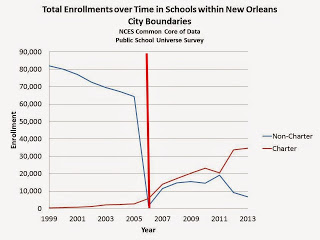Robert Pondiscio:
The broad thrust of Common Core for kindergarten is ensuring kids are ready to read by the first grade.
Many years ago, I took one look at the Common Core kindergarten standards and immediately resolved to stay away from them, because they made no sense, and I didn't know whether or not that was just the way kindergarten standards are written, or what. I'm not an early childhood person, so what the hell do I know? I'm sure this is the way 95% of people react to the standards as a whole.
In the intervening years, I've concluded that the kindergarten standards just don't make sense, period. Not just pedagogically, but as standards. For example, does the text of the standards support Pondiscio's claim? I would say not really, that the standards mostly emphasize what they emphasize all along -- textual analysis.
Also a narrow range of academic writing. They also have foundational reading standards at this level. Are the foundational reading standards "the broad thrust" of the standards here? Nobody can say definitively, because the intellectual midgets behind the 20 year "standards" project in American education didn't manage to create a formal system for indicating relative emphasis.
And beyond that, the standards certainly do require kindergarteners to read:
CCSS.ELA-LITERACY.RF.K.4
Read emergent-reader texts with purpose and understanding.
Surprisingly "emergent-reader texts" is actually defined in Appendix A:
Emergent reader texts - Texts consisting of short sentences comprised of learned sight words and CVC words; may
also include rebuses to represent words that cannot yet be decoded or recognized; see also rebus
But then in Appendix B, there are no specific examples of kindergarten texts except a few like this:
DePaola, Tomie. Pancakes for Breakfast. New York: Houghton Mifflin, 1978. (1978)
This is a wordless book appropriate for kindergarten.
OK... Also, every other similar kindergarten standard pointedly does not require independent reading:
CCSS.ELA-LITERACY.RL.K.10
Actively engage in group reading activities with purpose and understanding.
So... ??? To quote Audrey Watters, ¯\_(ツ)_/¯.


